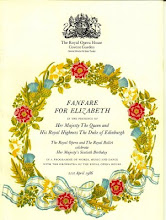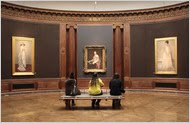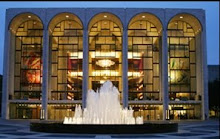Friday, March 21, 2014-- Symphony Hall
Celebrity Series of Boston
Yo Yo Ma cello
Kathryn Stott piano
Igor Stravinsky Suite Italienne
Hector Villa-Lobos Alma Brasileira
Astor Piazzola Oblivión
Manuel de Falla Siete Canciones Populares Españolas
Intermission
Olivier Messiaen from Quatuor pour de la fin du temps Louange à l'Eternité
Johannes Brahms Sonata No. 3 in D minor, Opus 108
Unfortunately, I neglected to make a note of where I found or who wrote the following review of the recital:
Yo-Yo Ma long ago established a reputation for exploring music off the beaten path. The versatile cellist continues to embrace little-heard works and popular songs from around the globe with the same vigor and enthusiasm he brings to standard repertoire.
His wide-ranging Celebrity Series recital with long-time accompanist Kathryn Stott at Symphony Hall Friday night could have easily been billed as “Our Favorite Things.” Music from Spain and Latin America blended with more familiar works by Stravinsky and Brahms, and through it all, the duo delivered with bold expression.
They opened with Stravinsky’s Suite Italienne, a svelte work that draws upon his ballet music for Pulcinella. The composer’s riff on Pergolesi, even in this cello and piano version, has all the graces and courtly airs of eighteenth-century music, yet Stravinsky’s blazing personal stamp, namely the jagged sonorities and purposeful wrong notes, crops up in the final movements.
Like Ma, Stott is a master of different styles, and she proved an excellent, fully equal partner at the keyboard. Using little pedal, she rendered the opening movements of Suite Italienne with appropriately dry, yet sensitive tone. Ma played smooth, ghostly phrases over her trickling accompaniment in the Serenata. The musicians pulled out the stops for a bristly, foot-stomping Minuet e finale, and their sparkling performance of the Tarantella, the penultimate piece in the set, drew rapturous applause.
Stott’s rippling piano lines and the flurries of melody from Ma’s cello captured the sensuous flavors of flamenco music in Manuel de Falla’s Siete Canciones Populares Españolas. These gussied-up settings of Spanish folk songs for voice and piano have taken on a new life as chamber music.
Ma and Stott gave Jota a sharp bounce befitting the spirited dance, and their churning statements in the antic Polo, the final song of the set, erupted into clamorous harmonies. The most beautiful of these pieces, Asturiana and Nana, unfold through spacious piano chords and whiffs of melody. Through poignant and delicate rendering, the musicians conjured images of rural Spanish landscapes.
The meat and potatoes of this recital came at the end. Brahms’ Sonata No. 3 in D minor, Op. 108, originally scored for violin and piano, is chock-full of lush melodies and thick, almost symphonic textures. Ma and Stott dug in to bring out the stirring phrases and soulful lyricism in the outer movements. The third movement moved with gentle ebb and flow, their playing clear as a country creek. The most affecting moments came in the Adagio, to which Ma gave rich, singing tone and warm vibrato.
The expressive gem of the evening, though, was “Louange à l’Éternité de Jésus” from Olivier Messiaen’s Quartet for the End of Time. The composer penned most of his quartet, a sprawling eight-movement suite for clarinet, violin, cello, and piano, while imprisoned in a German POW camp near Görlitz, Germany.
As with many works in his prolific oeuvre, “Louange,” the fifth of the set, reflects Messiaen’s strong religious beliefs. With minimal vibrato, Ma floated his prayerful, chant-like line over Stott’s steady stream of plaintive chords, the phrases seemingly left to fall where they will.
Three Latin American pieces, in colorful arrangements for cello and piano by Jorge Calandrelli and Kyoko Yamamoto, also showcased the duet in some tender moments. They captured the poignant melancholy of Alma Brasileira, the fifth of the Heitor Villa-lobos’ Choros. And for the slow, soulful tango of Astor Piazzolla’s Oblivión, Ma’s silvery tone and whispery touch gave the sensual melody a haunting distance.
The fire came with Camargo Guarnieri’s Dansa Negra, which draws upon Afro-Brazilian dance music. Ma’s bluesy riffs rippled over Stott’s jiving piano rhythms, and their parts collided in frequent statements of raw and explosive power.
Warm applause brought the duo back to the stage for three encores. Elgar’s tenderly lyrical Salut d’Amour is a Ma-Stott standard. The second, Cesar Camargo Mariano’s Cristal, a hip, rocking number filled with spicy rhythms, complemented the duo’s exquisite final offering, Saint-Saëns’ The Swan.
Yo Yo Ma and Kathryn Stott play as one of the encores "The Swan" from Carnival of the Animals by Saint-Saëns:
My personal favorite: "Meditation" from the opera Thaïs by Jules Massenet
Yo Yo Ma cello
Kathryn Stott piano
Background to the music---Nude Paintings by Masters (all men!): Ingres, Courbet, Tiziano (Titan), Manet, Munch, Schiele, Matisse, Renoir, Gauguin, Kirchner, Bonnard, Modigliani, Macke, Schad, Picasso, Balthus
My personal favorite: "Meditation" from the opera Thaïs by Jules Massenet
Yo Yo Ma cello
Kathryn Stott piano
Background to the music---Nude Paintings by Masters (all men!): Ingres, Courbet, Tiziano (Titan), Manet, Munch, Schiele, Matisse, Renoir, Gauguin, Kirchner, Bonnard, Modigliani, Macke, Schad, Picasso, Balthus





































No comments:
Post a Comment